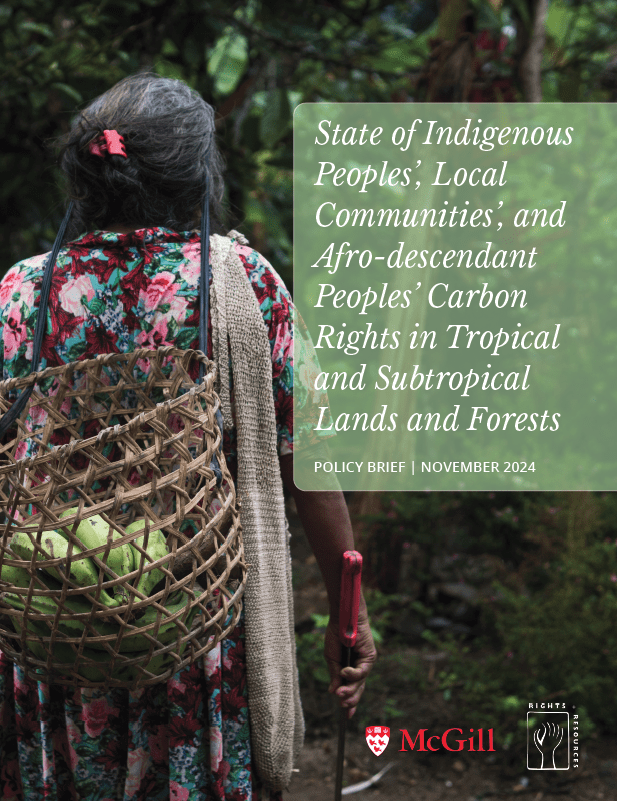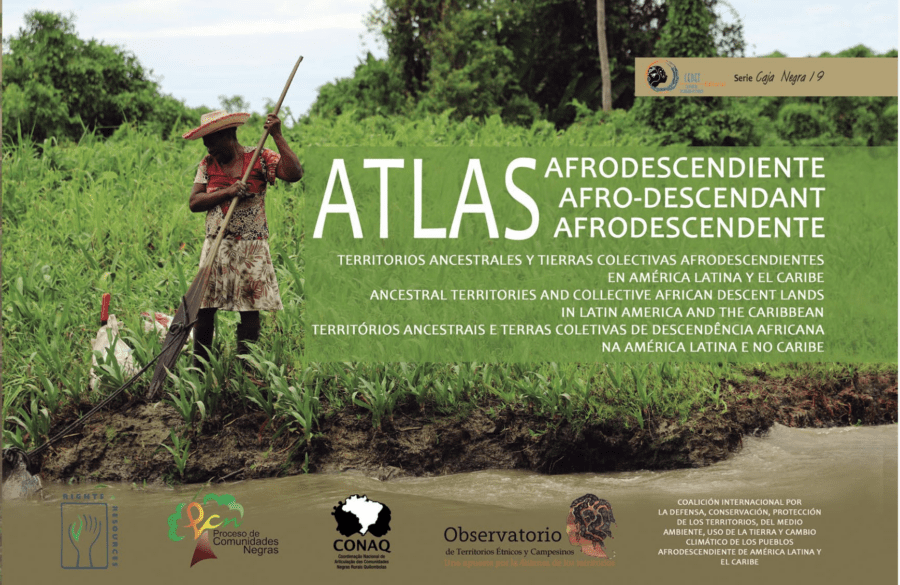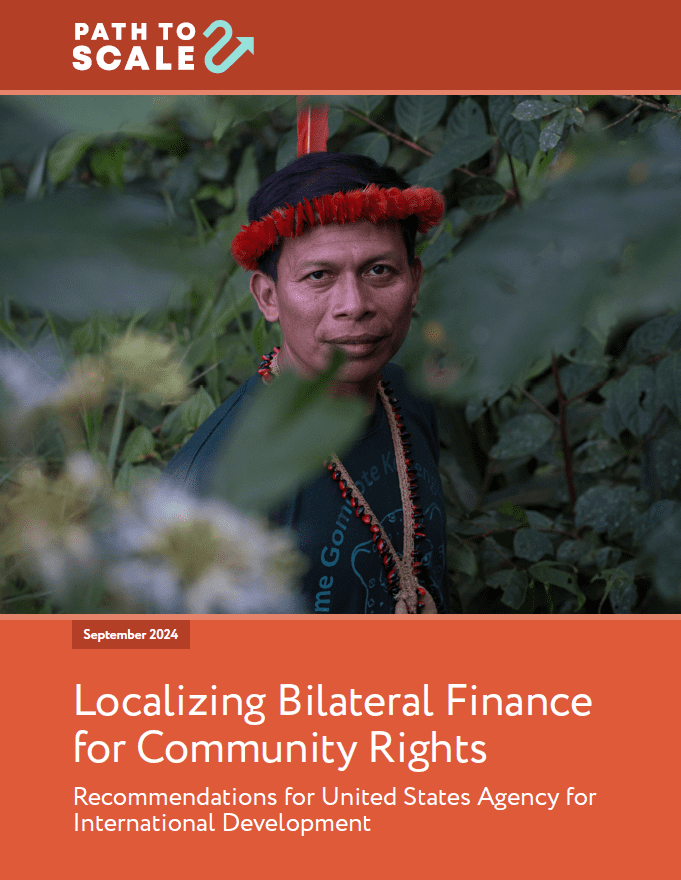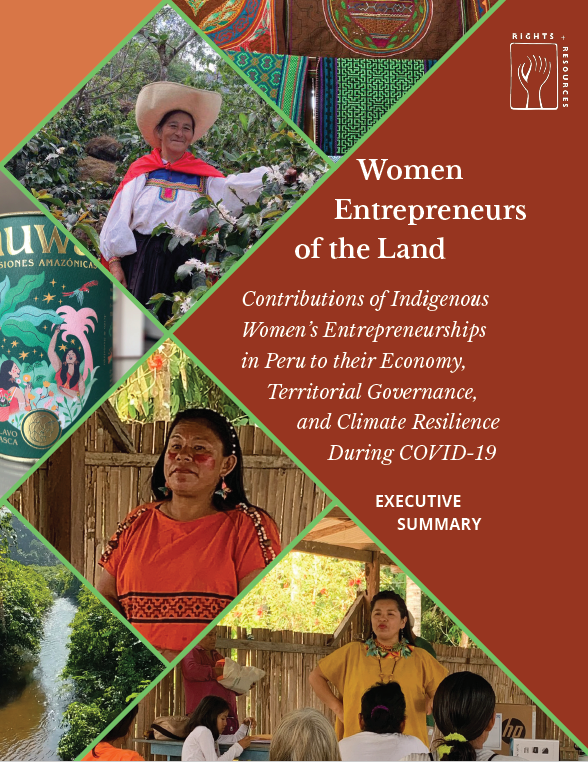This policy brief summarizes findings from a study undertaken by the Rights and Resources Initiative (RRI) and McGill University to systematically analyze the carbon rights held by Indigenous Peoples, local communities, and Afro-descendant Peoples in 33 countries in Africa, Asia, and Latin America.
In response to the dearth of data on funding for women and the need to support international advocacy promoting direct funding to Indigenous, Afro-descendant, and local community women’s groups and organizations, the Rights and Resources Initiative initiated a bottom-up research effort to build a baseline for measuring funding levels reaching community women on the ground and assess the extent to which existing grants and funding mechanisms are considered fit-for-purpose.
This Atlas maps the territorial presence of Afro-descendant Peoples in 15 countries in Latin America and the Caribbean, the state of recognition of their territorial rights, their overlap with areas that are important for regulating and mitigating climate change, and their contributions to conservation efforts.
This report aims to influence the localization agenda and improve bilateral policies and practices to ensure that more direct, fit-for-purpose support reaches Indigenous Peoples, local communities, and Afro-descendant Peoples and their supporting organizations to secure tenure rights and conserve key ecosystems and biodiversity.
This research includes four cases of enterprises led by Indigenous women across Peru, and analyze the contributions of Indigenous women-led enterprises to local economies, territorial governance, sustainable natural resource management, and resilience to climate change, particularly during the COVID-19 pandemic.
This document includes the results of the study Contributions of Indigenous Women's Entrepreneurship in Colombia to their Economy, Territorial Governance and Climate Resilience during COVID-19, which brings together four case studies of entrepreneurship led by Indigenous women from different regions of Colombia.






